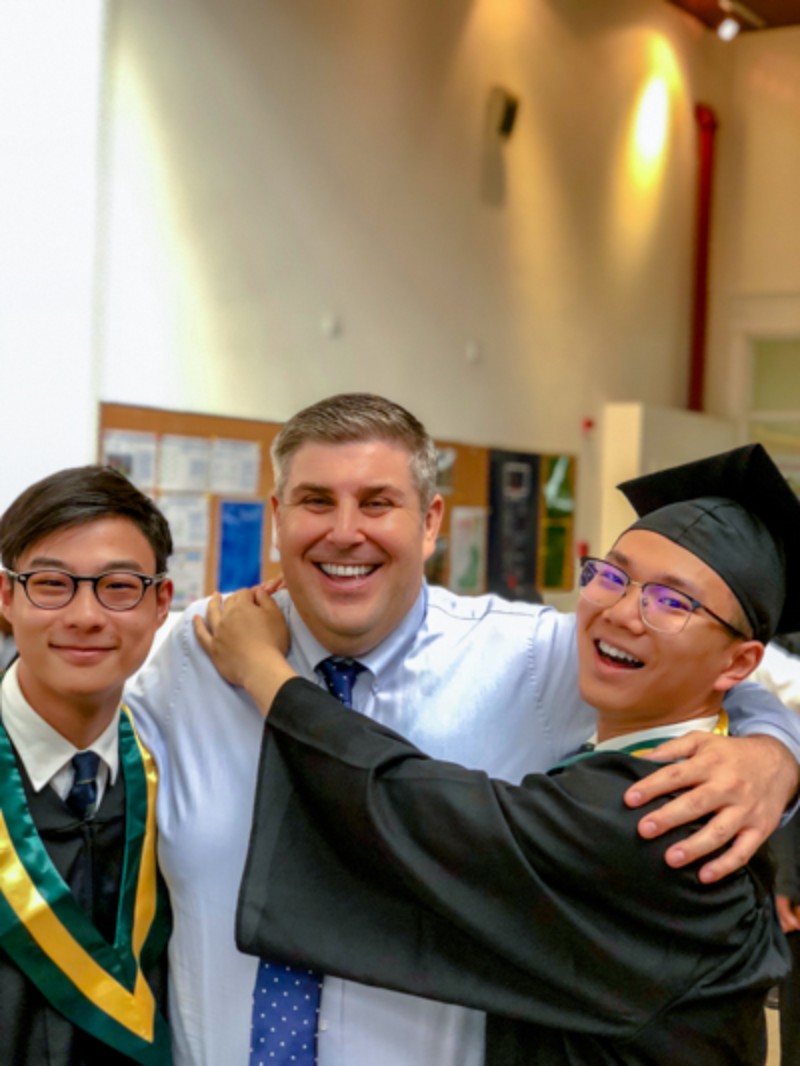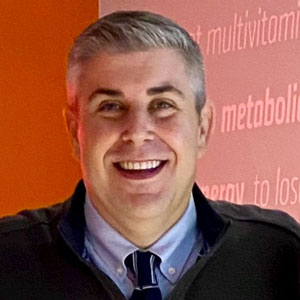Living and Working in the Far East: Job Interview Tips

As an international educator in the region of the world where the greatest amount of growth and job opportunities are, this is where you want to be! There is a contagious energy that flows through so many Asian cities like my current home in Shanghai, the commercial and economic capital of China. Asian cities are abuzz with activity – from early morning food carts to late at night when they’re bathed in the most beautiful neon lights. It’s a continent full of optimism, promise, and opportunity – for locals and expats alike. If you love what you do and want to take your skills and passion where the demand for high-quality international education outpaces supply, set your sights on Asia. Though jobs are plenty, they aren’t handed out; you’ve got to know what you’re doing.

Now in my ninth year abroad as both a teacher and administrator, I know firsthand the stresses of looking for an overseas teaching job; nothing feels as professionally irrational as telling your current school you’re leaving before you’ve been hired at your next school. It’s been seven years since I “quit before I was hired,” and for the past five years I’ve been the interviewer recruiting teachers to YK Pao School (YKPS). Each recruitment season I have a chance to review hundreds of resumes and interview dozens of candidates, ranging from potential first-time overseas teachers to seasoned 20+ year veterans. Every year candidates make avoidable mistakes if they did more research and asked the right questions before starting their search and signing with a school that was a bad fit. If you’re interested in going overseas for the first time or are already overseas and haven’t landed in a school that fits, please consider the following tips:
Register with an Overseas Recruitment Service
While many overseas schools accept direct applications, there are thousands of schools worldwide and there is simply not enough time in the day to find and research them all. Recruitment services add a level of selectivity for both schools and candidates; not every school or teacher is accepted into their respective databases. I landed my first overseas job at Colegio Jorge Washington in Cartagena, Colombia at the University of Northern Iowa’s Overseas Recruiting Fair, one of the oldest in the business. Since then, I’ve been registered with Search Associates. Each year, they assist in placing thousands of teachers in overseas schools – including my role at YK Pao School in Shanghai. ISS-Schrole and The International Educator (TIE) are other reputable recruitment services also available to international teachers.
Most services require a registration fee, application, and supporting documentation such as scanned reference letters for consideration. If accepted, the teacher has access to a database of schools and jobs, and schools have access to available candidates. Most companies also host recruitment fairs around the world where both schools and teachers are motivated to make and accept offers.

Keep Your Options Open
Time and time again, I hear teachers interested in going overseas say they want to find a job in Europe. They’re smitten by the idea of sipping a latte in a Parisian café or strolling with a gelato along the streets of Rome. However, they’re likely not getting a job in Europe because there is little to no attrition at European international schools, they often pick the strongest and most experienced teachers, and many are required to give hiring preference to EU (European Union) citizens. Instead, go to Europe on vacation because you’ll be able to do that with your salary earned in most other parts of the world, including Asia.
There are some fantastic schools in less traveled parts of the world, and there are some bad schools in the world’s most renowned cities. Tokyo, Seoul, Taipei, Hong Kong, and Singapore get a lot of attention in the East Asia region for good reason – they’re wonderful! But so too are Shanghai, Beijing, Shenzhen, Kuala Lumpur, Hanoi, Nagoya, and the many other modern, growing, and vibrant cities in the region.

Understand What’s Out There
Know what types of schools are out there so you feel confident it’s the type of school you want to work in. There are significantly more for-profit schools in the overseas world than in North America. While many are well-run and offer a wonderful education for students, there is a much different feel than the non-profit schools many teachers from the U.S. are used to. The words “American” or “International” don’t necessarily indicate anything other than the school name itself. Some American schools around the world get their name through support from the U.S. State Department Office of Overseas Schools and serve many (though not exclusively) diplomatic families. Other American schools might take that name because they adopt American curricula, such as Common Core, in their school. Some might include “American” in their school name because it evokes a feeling of trust from the community it serves but can’t claim a diplomatic or curricular connection.
Bilingual and proprietary schools (like YK Pao School) are growing in popularity as many overseas schools now enroll an increasing number of host-country national students. This is especially true in East and Southeast Asia, where in rapidly developing countries like China, Indonesia, and Vietnam there is a desire for parents to provide their children an English-based and internationalized education they didn’t have as kids. In fact, enrollment of host-country nationals is increasing in all types of schools in Asia.
Regardless of where you go overseas, be prepared to teach students for whom English is their second language. Having a background in or acquiring professional development in language acquisition will place you in greater position for success in an overseas classroom. Knowing the basic facts of a potential school is a critical yet often overlooked part of a job search. So, read through school profiles on the recruitment database, read through a potential school’s website, and ask clarifying questions in an interview. If you know the type of school and the students it serves, you’re going to be in better shape during an interview and in a better position for success if you land the job.
Lack of Parity
ISC Research projects that a global demand for international education will require an additional 7000+ schools and 400,000+ teachers in the next 10 years, with a significant portion ofthis growth in Asia (Gaskell, 2019). As such, the market will be flooded with brand new schools across the region.
Many young schools like YK Pao School are well-run and thriving in their relative infancy. However, many schools are not well-managed and will close, sometimes without warning and at a financial loss to the families attending and the teachers who were once employed, not to mention the impact on learning for students. The Shanghai education market is especially competitive. Chinese parents have high standards and will not hesitate to shop for another school if they do not feel their child is getting the best education from the tuition they pay. One benchmark for quality is school accreditation. A school should already be accredited, in the process of, or planning to go through the process. Accreditation doesn’t guarantee excellence, but it can help filter out schools that don’t adhere to widely accepted minimum standards of school governance, finance, teaching andlearning, human resource background checks, and other indicators of school best practices. Most schools that prepare to send their students to overseas universities are dually accredited by the Council of International Schools (CIS) and one of the U.S. based accreditation agencies, such as the Western Association of Schools and Colleges (WASC).
Another sign of a good school is transparency. We do our best to connect prospective teachers with current teachers so they can hear from them what it’s like to work at YK Pao School. We don’t coach our teachers, but rather encourage them to be candid and share all their experiences as transparently and honestly as possible. No school is perfect, and even the best schools around the world have issues. If a school isn’t either willing to share what it needs to do better, or put you in touch with their teaching staff if they want to hire you, there may be something they are trying to hide, and it might be best to turn your attention to a school that is more candid.

Focus on the School
You’re going to spend at least a third of your day at school. How you feel about that school and its management, curriculum, students, parents, colleagues, resources, and advancement opportunities is likely going to be one of the main factors that determines whether or not you’re happy and want to stay there.
One reason I came to YKPS was for an opportunity to be a leader. Our secondary campus was barely a year old and growing fast when I arrived. This growth presented me and other early to mid-career teachers with opportunities for school leadership that aren’t as obtainable in quality schools with longstanding reputations. The trade-off for earlier advancement was that we put in many more hours “building” than one might at a more established school – creating and writing policy, procedures, and curriculum in all areas of school life. It was exhaustingly fun for me, but for some teachers – especially veteran teachers who came to us from well-established schools, they found our early years of laying a foundation absolutely maddening because there were so many unknowns and they never settled in. For me, YK Pao School has been the most impactful professional experience I’ve had as an educator, and know that several others who arrived at a similar time and on a similar career arc would say the same.
Personalize Your Approach for the Best Fit
Recruiters can smell a canned introductory email or cover letter from a mile away. Some schools get hundreds of applications for a single posting and they don’t have time to read a lengthy generic email or cover letter you sent to several dozen schools. Too many times we receive applications from teachers who say they believe would be a great fit at YKPS, and then in a follow-up conversation, it’s clear they haven’t done any significant research into the school. While a teacher may end up being a great fit, don’t make the claim unless you’ve done your research. Tackle your job search like we ask students to approach their college and university search. Give your best effort on a dozen or so schools that you like and believe you would be a good fit for. Personalize a short email – one to two paragraphs at most – then let your resume and references do the talking until you get an interview. There are so many outstanding teachers out there, so those who have written to us with a demonstrated commitment to bilingual education, teaching Chinese students, teaching those for whom English is a second language, and appreciation of Chinese culture go straight to the top of the resume pile. The ancient Chinese philosopher, Lao Tzu said “a journey of a thousand miles begins with a single step.” Start your new journey by fixing your eyes eastward. Consider a school in Asia – especially China for your next role. I’m sure you’ll be enamored by the potential, growth, and energy the Far East. See you at the fairs!
This article is available and can be accessed in Spanish here.
Gaskell, R. (2019, February). International School Market Research and Trends. Poster presented at the Association for the Advancement of International Education Conference, San Francisco, CA









